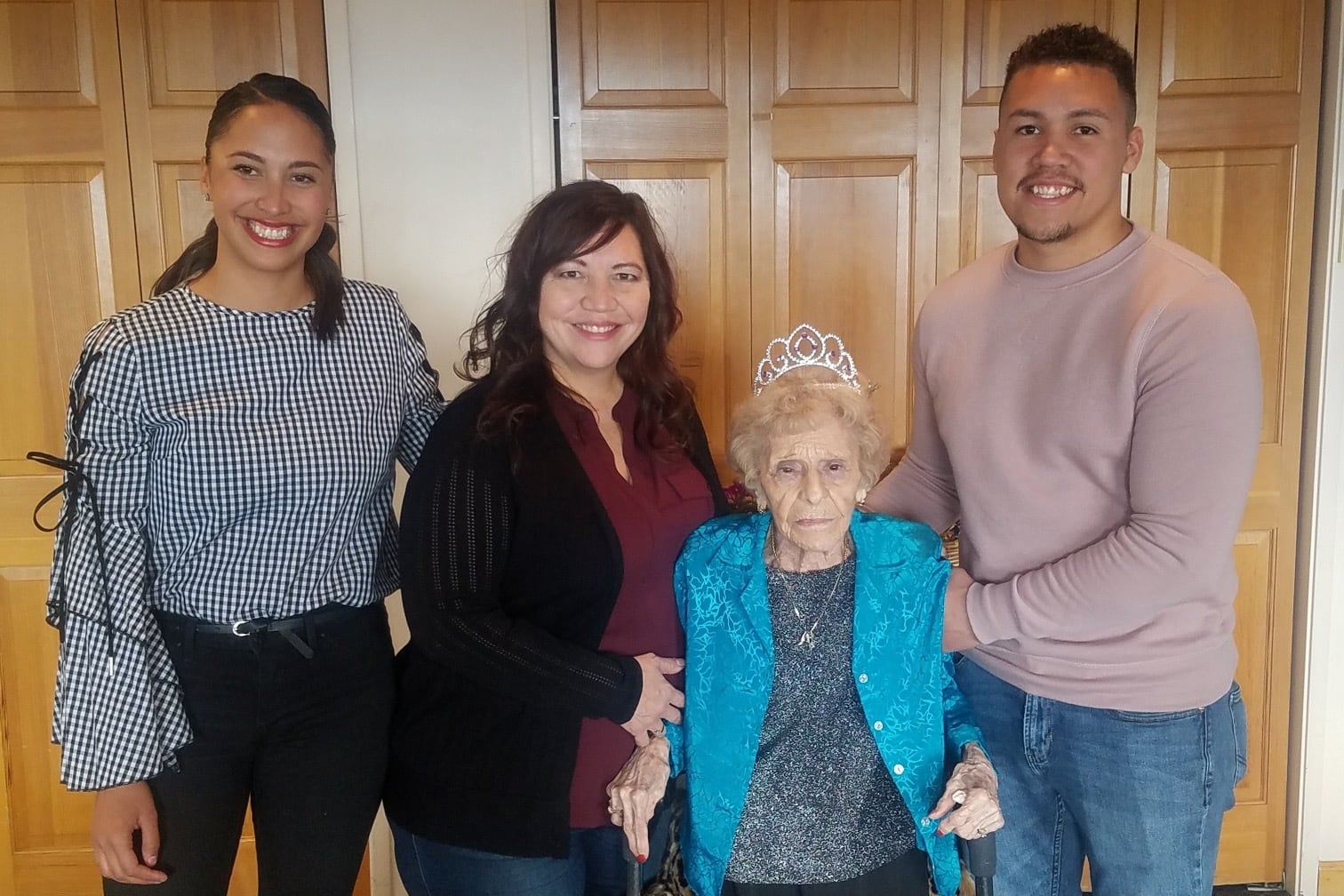Sign up for Chalkbeat Colorado’s free daily newsletter to keep up with education news in Denver and around the state.
A longtime Denver Public Schools volunteer and advocate and the mother of two DPS graduates is running to represent northwest Denver on the school board.
Marlene De La Rosa began serving on school committees when her twins, who are now 29, were in preschool. Her advocacy continued throughout their school career, from Denison Montessori elementary school to North and East high schools. She also served on several district and citywide committees, advocating for Latino parents and students while working full time as an immigration court specialist with the U.S. Department of Justice.
De La Rosa, 58, said her recent retirement and a lifelong passion for education motivated her to run for school board. She will challenge incumbent Charmaine Lindsay and candidate Adam Slutzker for a seat representing District 5, which encompasses northwest Denver.
“I am a public servant and have been all my life,” De La Rosa told Chalkbeat. “Leadership is a lifelong journey, and that’s the way I envision continuing on this path to serve my community.”
Three of the seven Denver school board seats are up for grabs Nov. 7. The election has the potential to shift the dynamics of the board, which has been criticized for infighting. Also at stake is how the board will deal with pressing issues such as declining enrollment and student safety.
De La Rosa said her top priorities include higher pay for teachers, diversifying the teacher workforce, and closing test score gaps between students of color and white students.
Declining enrollment and the possibility of school closures is a pressing topic in northwest Denver, where De La Rosa said her family has lived for four generations. The region has been hit hard by gentrification, which has pushed out families and driven down student counts.
De La Rosa said she understands how fewer students means less per-pupil funding, which often leads small schools to cut programs or staff. But she said DPS’ recent school closure decisions happened too quickly, and the community deserves more time to understand the issues and prepare for their children to switch schools.
Almost a decade ago, De La Rosa said she was hired by DPS to facilitate a community process that ended with the placement of Denver Montessori Junior/Senior High in a vacant elementary building. Some parents wanted the building to remain an elementary school, but De La Rosa said sharing Census data and demographic projections helped change their minds.
On school safety, De La Rosa said the district needs to monitor the effects of the board’s recent decision to return police officers to DPS campuses in the wake of a shooting inside East High. Her son had a positive experience with a school resource officer in high school, but De La Rosa said the board needs to ensure that’s the case districtwide by tracking the number of tickets SROs are issuing to students and for what offenses.
“They have a plan in place, and we should continue to monitor what’s going on with that plan,” De La Rosa said. “Is that meeting the needs of each specific school community? Are those school leaders happy with that plan? Do they think that’s sufficient?”
De La Rosa has been endorsed by Denver Families Action, the political arm of the organization Denver Families for Public Schools. Denver Families launched in 2021 with the backing of three local charter school networks and gets funding from The City Fund, a national organization that supports charter schools and school reform.
Successful Denver school board candidates are often backed by reform organizations or the Denver teachers union. Both spend hundreds of thousands of dollars on mailers and canvassing, making it hard for candidates without endorsements to compete.
Asked her views on charter schools, De La Rosa said, “I don’t follow any specific ideology other than, ‘How do we offer the best we can for every kid?’”
De La Rosa said she supports school choice and used it for her own children, including enrolling her daughter at East High. But she also said that the choice system is not perfect.
“You have to evaluate as the parent: What’s the best for my particular child’s needs?” she said.
Both of De La Rosa’s children were competitive athletes, which influenced the high schools they chose, she said. De La Rosa served as a parent representative on the collaborative school committee at East High, advising school leaders on how to close academic gaps between students of color and white students, she said.
She also ran a student athlete leadership program at North High that aimed to boost students’ grades and self-esteem. One year, she said she got a grant to take five student athletes to a national social justice conference in Washington, D.C., where they shook hands with former President Barack Obama.
When Democratic U.S. Sen. Michael Bennet was superintendent of DPS from 2005 to 2009, De La Rosa served on a districtwide parent empowerment council that informed parents about everything from test scores at their children’s schools to how to plan healthy meals for their families.
De La Rosa currently serves as a mayoral appointee to the Denver Parks and Recreation Advisory Board and the Denver Latino Commission. She is also a founder of LatinasGive!, a circle of women who give small grants to organizations that serve the Latino community.
“I give my money, I give my time, I give my knowledge, I give my love,” De La Rosa said. “Passion is mainly what I’ve given over all these years to support the community.”
Melanie Asmar is a senior reporter for Chalkbeat Colorado, covering Denver Public Schools. Contact Melanie at masmar@chalkbeat.org.






